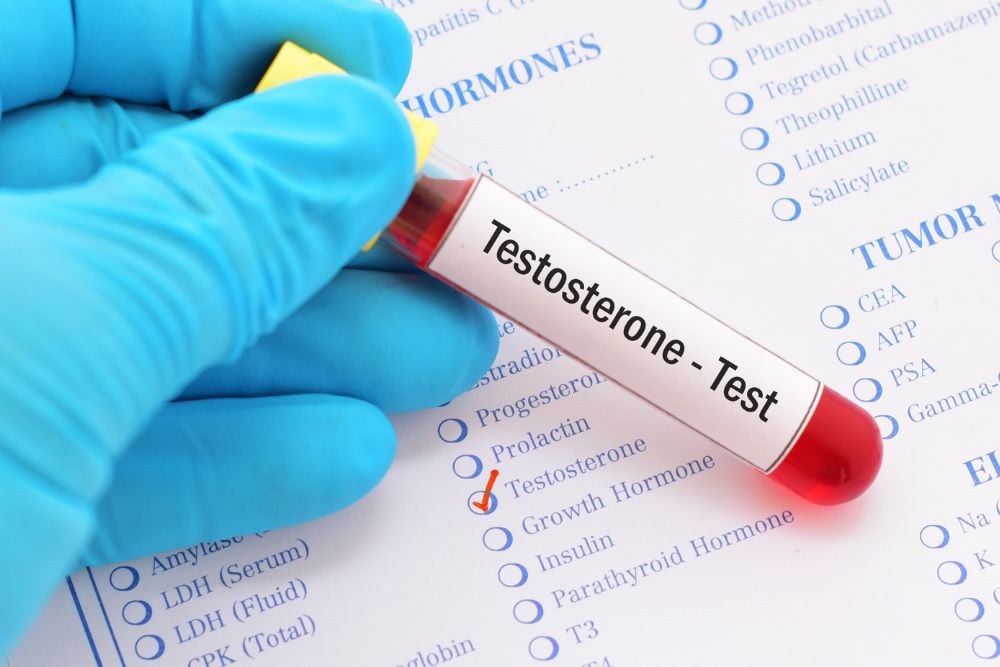What is Male Hormone Replacement Therapy?

Testosterone replacement therapy (TRT) is used for people with low testosterone levels from various causes. Testosterone levels can decline for various reasons, including as a normal part of aging. Low testosterone levels can cause diminished sex drive, low energy, and other symptoms. But TRT isn’t safe or effective for everyone. It’s essential to consult with a medical expert and consider the pros and cons of TRT to learn whether the risks outweigh the benefits for your specific circumstance.
What is Testosterone?
Testosterone is a male sex hormone produced in the testicles and adrenal glands. Testosterone is responsible for the development of organs and traits such as:
- Male genitalia
- Muscle bulk
- Hair pattern (such as facial and body hair)
- Deep voice
Many people associate testosterone with sexual characteristics and a person’s sex drive, but testosterone levels also influence other factors, including:
- Mood
- Energy levels
- Heart health
- Bone strength
- Red blood cell production
- Sperm production
What is Testosterone Replacement Therapy (TRT)
The process of TRT involves replacing the testosterone lost due to injury, disease, a medical condition, aging (i.e., hypogonadism), or a congenital (at birth) condition. Testosterone is also given after the removal of one or both testicles (orchiectomy) as a result of testicular cancer or other conditions such as testicular torsion (i.e., rotation of a testicle resulting in loss of blood flow).
There are several methods for administering testosterone, including:
- Patches
- Gels
- Nasal sprays
- Injections
- Oral (by mouth)
Note that oral testosterone was formerly only available in one formulation, methyl-T, linked with liver toxicity. But today, there is a new form of oral testosterone called T undecanoate (TU). Studies show there is no evidence of liver toxicity from TU.
Who Needs TRT Treatment
A common misperception is that anyone with a low drive (including healthy aging people) should take testosterone. But TRT is linked with many risks, including severe side effects and dangers of abnormally high testosterone levels (e.g., low sperm count, heart muscle damage, and prostate enlargement). Therefore, doctors advise against the use of TRT unless you have a condition involving low testosterone levels, such as:
- Primary hypogonadism (when testes do not properly function
- Secondary hypogonadism (low testosterone levels linked with aging or caused by a medical condition)
- Testicular, prostate, or male breast cancer
- Loss of both testicles (orchidectomy)
- Testicular injuries
What Is Hypogonadism?
Hypogonadism is a condition in which the testicles do not produce enough testosterone or sperm (or both). There are two ways for hypogonadism to develop: either it is present at birth or it develops later in life. The condition is strongly associated with aging. Studies show that beginning at age 30, testosterone levels decline by 1% per year. Hypogonadism, linked with aging, is thought to be commonly underdiagnosed.
Is TRT Safe?
TRT has been linked with many side effects, such as:
- BPH (prostate gland enlargement)
- Male breast enlargement
- Polycythemia (a high concentration of red blood cells)
- Sleep apnea
- Blood clots
- Diminished sperm production
Close medical monitoring is essential to the safe and effective use of TRT. This includes regular office visits and frequent testosterone level lab tests.
Consult with a Fertility and Sexual Specialist
If you are considering TRT, particularly if you plan to start a family, it’s essential to seek professional advice from a reproduction and fertility expert, such as Dr. Martin Bastuba, Board Certified Urologist and Male Fertility & Sexual Medicine Specialist. Contact us today at our San Diego, California office for a free consultation to learn about your fertility options.






